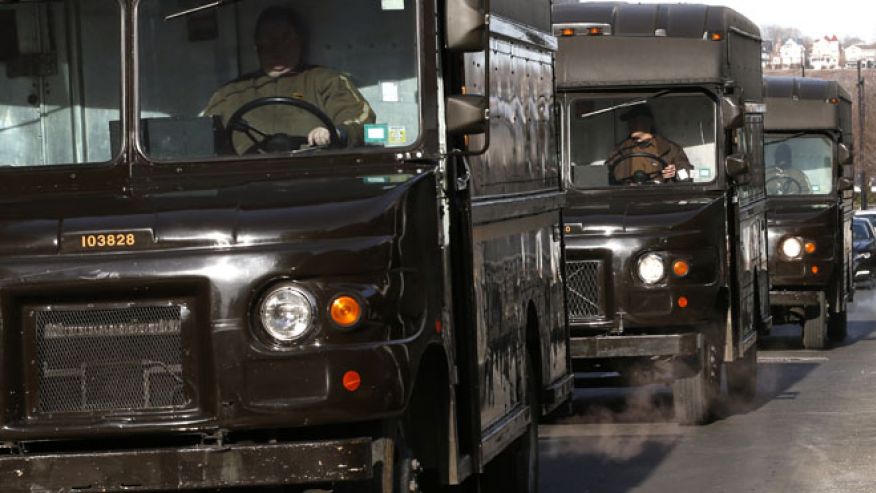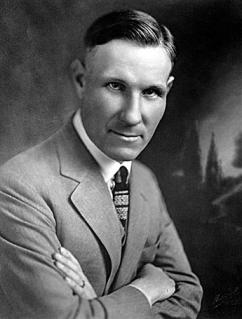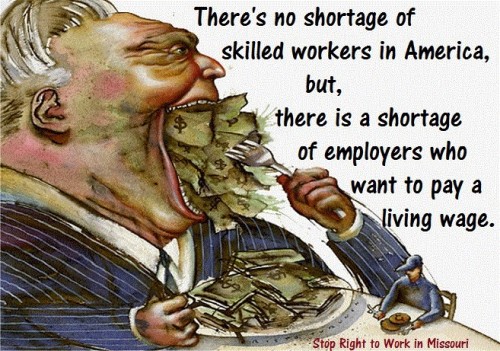 (Photo: torbakhopper)The largest private sector union contract in the U.S. had been in limbo since last summer, as UPS workers around the country voted down their local supplements, sometimes more than once. Now the five-year contract is ratified—by fiat of the Teamsters international.
(Photo: torbakhopper)The largest private sector union contract in the U.S. had been in limbo since last summer, as UPS workers around the country voted down their local supplements, sometimes more than once. Now the five-year contract is ratified—by fiat of the Teamsters international.
Members were angry about concessions on health care in the national agreement but also about other issues such as the need for more full-time jobs.
In 1991 the IBT constitution was overhauled to give members more democratic rights. Members won the right to vote on local supplements and riders to national contracts. Two hundred thirty-five thousand full- and part-time UPS workers vote on 28 local and regional agreements that cover issues such as the grievance machinery, working conditions, rules on seasonal workers, seniority rules, and in some cases, pensions. The constitution stipulates that the national agreement doesn’t go into effect until all supplements are ratified.
Early last year, the Teamsters’ chief bargainer with UPS, Secretary-Treasurer Ken Hall, declared ending harassment the union’s main issue. But he quickly switched to a defense of health care when UPS demanded that members start paying premiums of $90 a week. Hall declared that members would not “pay nine cents” for their plans. The International sponsored a dozen local rallies against the cuts.
But Hall soon accepted health care concessions anyway, for 140,000 members, including all part-timers (the insurance plans vary regionally). Members were switched from a company plan to a Taft-Hartley plan called TeamCare that had inferior coverage, higher out-of-pocket expenses, and stiffer retiree premiums.
Forty-seven percent voted no on the national contract.
Lots of Reasons to Vote No
There were plenty of other reasons to vote no. Hall achieved only unenforceable language on limiting UPS’s intense harassment, surveillance, and overtime for drivers that averages two hours a day. A year was added to the time it takes drivers to reach top pay.
UPS made $4.4 billion in profits in 2012 and another $4.4 billion in 2013.
So angry members organized, including on Facebook. In Philadelphia, for example, workers made “Vote No” T-shirts that they wore to work and to contract meetings.
Members voted down their local riders and supplements in 18 areas, mostly in the Midwest, the West, Pennsylvania, and New Jersey, covering 63 percent of UPS Teamsters.
These no votes forced the international to go back to the table and improve Teamcare benefits and lower out-of-pocket costs, not just for those in the areas that voted no but for everyone in the plan.
In the wake of these improvements, the contract was approved on a second (or third) vote in most areas, after a big push by the International. But members held out in Louisville, Kentucky; Philadelphia; and western Pennsylvania.
Enormous Leverage
Louisville is the site of UPS’s enormous air hub, where any package that goes by air to the Midwest and South makes a stop. Nine thousand UPSers work at the hub—with, of course, a great deal of power to affect operations. But their leverage was squandered.
On April 16 members of Local 89 in Louisville voted no on their supplement for the second time, this time by 94 percent. Members were angry that they spend up to an hour a day—unpaid—on a shuttle that takes them to and from the parking lot to their work stations; the site is that big. They were also demanding that more part-time jobs be converted to full-time ones.
Louisville’s 94 percent no vote seemed to be the trigger that convinced the International to step in and declare both the national agreement and the three remaining local ones ratified, despite clear language in the constitution about local ratification rights. It was clear these members were not going to vote yes without some progress.
But Hall insisted he knew why members had voted no on their local agreement: it was solely because of the national health care changes, which were a done deal. Because their reasons for voting no were misguided, in other words, the union needed to step in.
Hall apparently relied on language that allows the national executive board to amend the ratification article of the constitution “if at any time it believes such action will be in the interests of the International Union or its subordinate bodies,” although he did not officially take such action.
The constitution’s language does not mention the interests of the members—nor of UPS. UPS didn’t want to talk further about the Pennsylvania or Louisville contracts. Nor did Hall, who could have used the union’s enormous leverage—a whole national contract on hold—to force UPS to the table on members’ deeply felt local issues.
Of course, this is the same Ken Hall who threw away the union’s strike threat last year. He informed UPS in the fall of 2012 that he wanted to settle the contract four months ahead of its July 31, 2013 deadline, so that customers wouldn’t have to worry about a strike.
Members have used their right to vote on supplements to stop concessions in their local agreements—and to win gains. In the last bargaining round, in 2008, 7,000 UPSers in Local 804 in New York City voted no 2 to 1, held up the national agreement, and stopped the company from eliminating their 25-and-out local pension and other concessions. This round, Local 804 increased local pensions to $4,000 a month, despite pressure from the International to settle for $3,700.
Politics
Hall’s and President James Hoffa’s terms of office expire in 2016. It is speculated that Hoffa will retire and attempt to turn the presidency over to Hall. But the 1.2 million Teamster members have the right to vote on their national officers.
In 2011, the president of Louisville’s Local 89, Fred Zuckerman, ran for international vice president on a slate that opposed Hoffa. Running separately, his slate and Teamsters for a Democratic Union’s Sandy Pope got a combined 41 percent of the vote
TDU has been at the center of organizing against concessions at UPS over the last year. A conference call Saturday hosted by TDU member Mark Timlin, who runs the Vote No Facebook page, drew up to 1,000 Teamsters, mostly from UPS and freight, to hear from Zuckerman, Pope, and Local 804 president Tim Sylvester about the imposition of the contract and the future of the union. (Local 804 is also the local that recently reversed 250 firings through a concerted campaign against UPS.)
Sentiment on the call was that the way to stop such contract giveaways in the future was to get rid of Hoffa, Hall, and their supporters. Callers urged the three to build a united slate.
By Jane Slaughter, Labor Notes | Report




